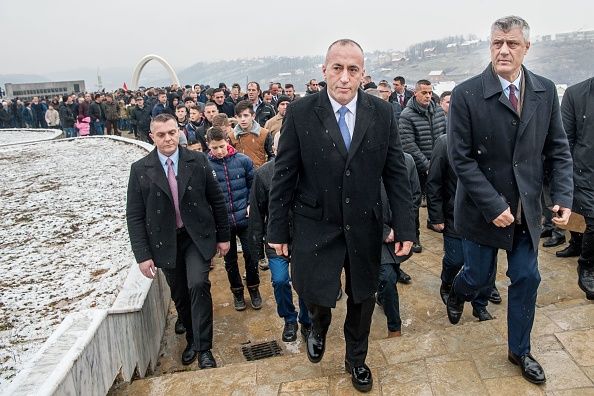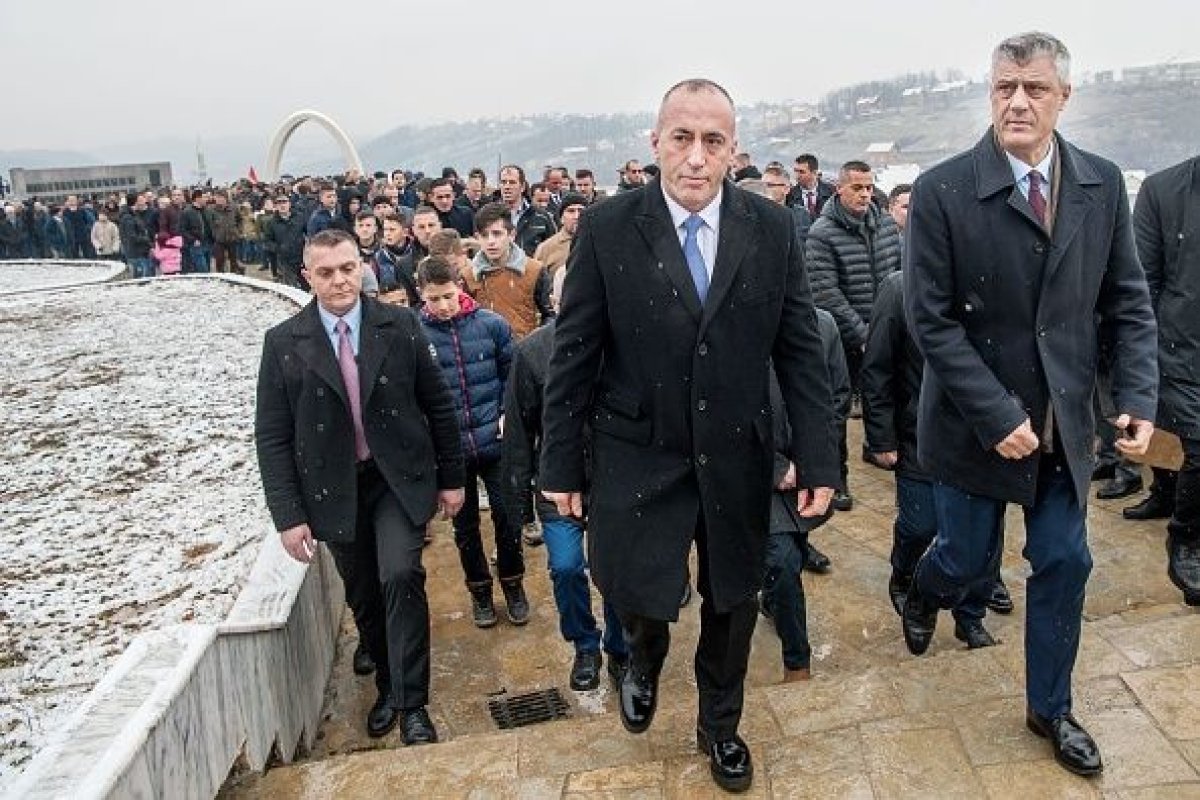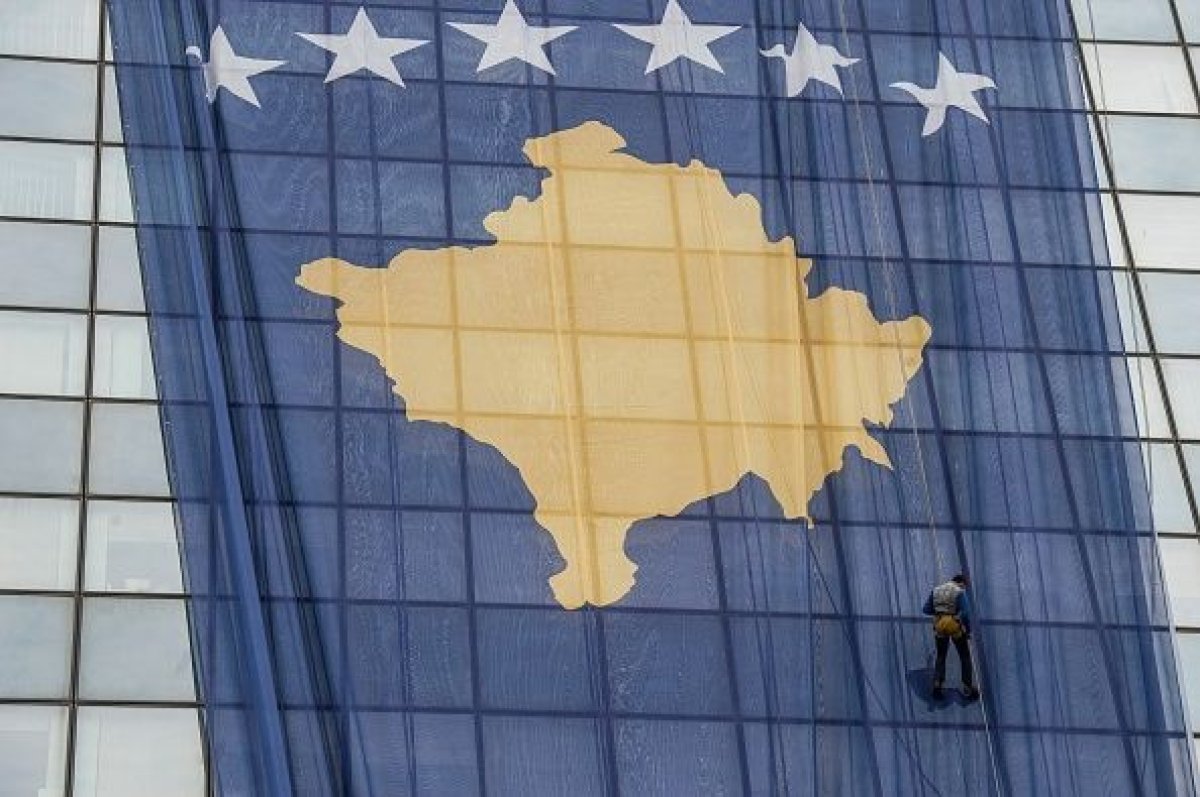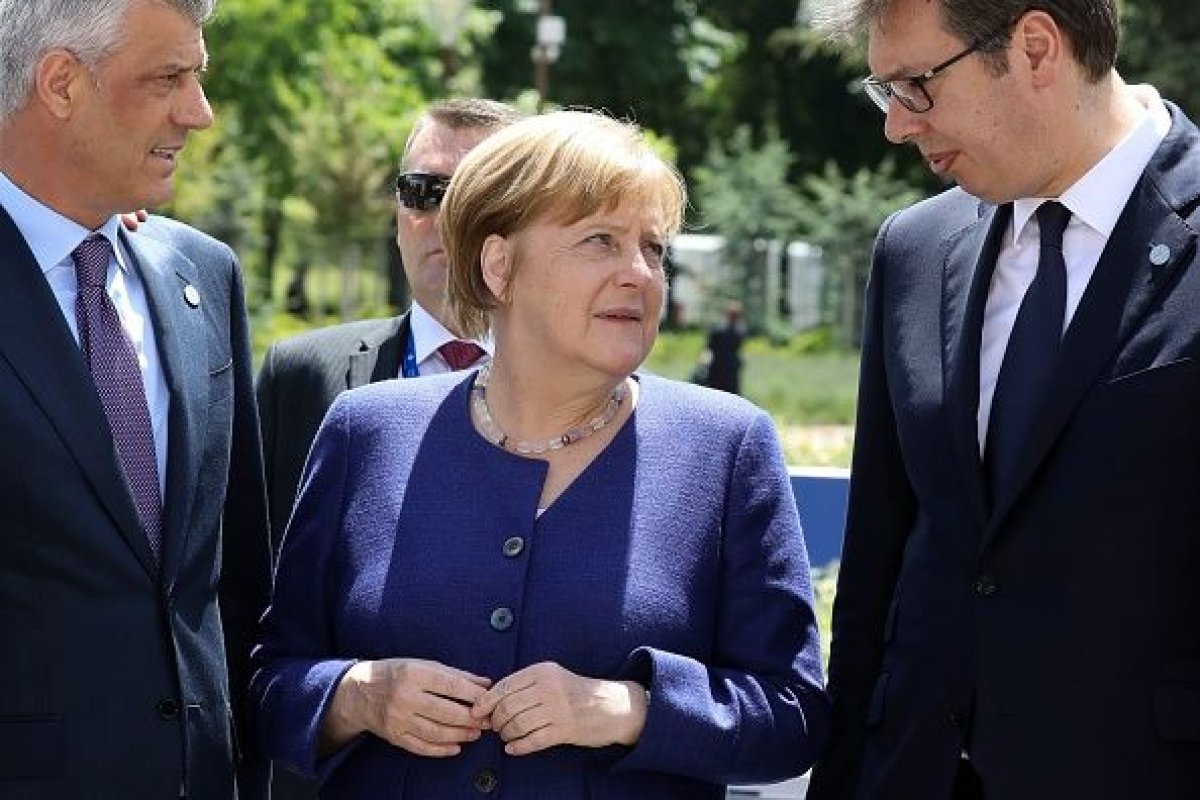
Kosovo's Prime Minister Ramush Haradinaj visited the U.S. to advocate against a proposal put forward by his President.
The 50-year-old former leader of the Kosovo Liberation Army (KLA), an ethnic-Albanian paramilitary group that fought for Kosovo's independence from Serbia in the 1990s, believes a proposal supported by his fledgling country's president could return the Balkans to war.
"I've been myself part of the difficult experiences of the wars and tragedies, so I don't want to see our children now experiencing what we experienced 20 years ago," Haradinaj told Newsweek during a meeting in Kosovo's consulate in New York.
But Kosovo's President Hashim Thaci, another former member of the KLA, thinks he has a solution to the decades-long dispute with Serbia that has kept Kosovo outside of international institutions such as the United Nations and the EU. The proposal, which has been floated by Thaci and his Serbian counterpart Aleksandar Vucic, would see parts of northern Kosovo inhabited by ethnic Serbs exchanged for parts of southern Serbia inhabited by ethnic Albanians. The territory swap, described in a New York Times op-ed last month as "peaceful ethnic cleansing," has long been opposed by members of the international community who bristled at the idea of redrawing borders along ethnic lines.

During the week of the U.N. General Assembly, Haradinaj met with top U.S. military officials, including Defense Secretary James Mattis and members of Congress, to ask for their support to oppose the proposed land swap. U.S. officials allegedly told Haradinaj that they support the continued dialogue between Kosovo and Serbia, but they did not voice strong opinions either for or against a territory swap. National security adviser John Bolton and U.S. Ambassador to Kosovo Greg Delawie have signaled that they would not oppose the land swap if Serbia and Kosovo agree on it.
Some analysts, however, believe the exchange, whose precise details have yet to be revealed, might be the only way to convince Belgrade to recognize Kosovo's independence. A former province of Serbia, Kosovo declared independence unilaterally in 2008 and has since been recognized by 116 countries worldwide. But Serbia, Russia and several key members of the EU still don't recognize its independence, and the dispute has prevented both Serbia and Kosovo from becoming full-fledged members of the international community.
Thaci appears determined to be the one to find a solution to this longstanding problem. He's even asked Kosovo's constitutional court whether an international agreement would be considered valid if he signed it without the approval of Kosovo's parliament. Haradinaj, however, has made it clear he will never support the deal, and he has advocated for parliament to have a role in decision-making.
"We need an agreement, a legally binding agreement with Serbia, even though the past was very tragic. But territories and borders in our region should never be in question—it's a way to tragedy, a short way to tragedy," Haradinaj said. "There is an enthusiasm about the idea of coming to an agreement with Serbia, and we all welcome that and want to be creative and to look for ways to arrive at that. However, this is a setback in our region. And whoever stands for this idea does not respect Kosovo and our achievements. It's a threat for the peace and stability of our region."
Haradinaj is clearly not alone in his opposition to the plan. Over the weekend, around 20,000 protesters gathered in Kosovo's capital to protest the idea. Some yelled slogans calling for the president to stop down. A recent poll conducted by the Kosovo Democratic Institute demonstrated that over 75 percent of respondents oppose the land swap.

Still, the land swap proposal seems to be getting traction both in the Balkans and abroad. Aside from Bolton and Delawie, the EU, which is facilitating the talks between Pristina and Belgrade, is also showing signs that it could waver. The EU's Foreign Policy Chief Federica Mogherini recently defended the countries' right to discuss the idea. Within the international community, only Germany's Chancellor Angela Merkel has come out strongly against a territory swap in recent months.
Vucic did not respond to requests for comment from Newsweek about the plan.
Meanwhile, others argue that Thaci has the mandate to push through the agreement if he can.
"The worst thing would be to remain in a long-term limbo," Petrit Selimi, a former foreign minister of Kosovo, told Newsweek. "While mutually agreed border correction seems a risky proposition for some for all the good reasons, remaining in a status quo is dreadful, [and it's an] open-ended invitation for external meddling, renewed incidents and conflict."
Selimi pointed to recent studies that suggest Thaci is currently one of the country's most trusted politicians. Another recent study by Kosovo's Democratic Institute showed that 44 percent of respondents want Thaci to lead the talks with Serbia, while only 25 percent chose Haradinaj for the task.
Analysts, however, say that many Kosovars don't trust Thaci or Serbia to get them a good deal.
"Public opinion is primarily confused because the whole thing remains shrouded in mystery. First, there is considerable distrust for Thaci and his personal motivations for entering such talks. Secondly, most people don't really believe Serbia will give away territory, so they fear this is a mere tactical prelude to legitimize the partition of the north, a modest exchange where Serbia wins more, or some kind of territorial autonomy for Serbs in Kosovo. They don't believe Thaci can get more," Agon Maliqi, a political analyst from Kosovo, told Newsweek.

"Thirdly, public perception in Kosovo is also heavily shaped by the split between Western partners, especially the German and British reluctance to embrace land swaps. Usually, people would be more receptive to the messaging from the U.S., but there is an impression in key circles the U.S policy shift under Trump is temporary and that we should wait," Maliqi continued.
Meanwhile, some note that the territory swap would jeopardize the multiethnic communities many in the region have attempted to construct following the wars of the 1990s. Rilind Latifi, a graduate student from Kosovo, said the deal would "render moot all the efforts to date for building multiethnic and inclusive states in the Balkans."
Gordana Ristic, an NGO director in southern Serbia whose organization works to build ties between ethnic Albanian and Serbian youth in the region, said, "What bothers me is the fact that the international community invested so much money into reconciliation, and now this."
For Haradinaj, it's time for the region's leaders to propose better solutions.
"I respect [Serbian] President Vucic and Prime Minister [Ana] Brnabic, and for us, it is very important that Serbia progresses toward the EU," Haradinaj said. "Unfortunately, the region needs more courage than they are showing today."
Uncommon Knowledge
Newsweek is committed to challenging conventional wisdom and finding connections in the search for common ground.
Newsweek is committed to challenging conventional wisdom and finding connections in the search for common ground.
About the writer
Cristina Maza is an award-winning journalist who has reported from countries such as Cambodia, Kyrgyzstan, India, Lithuania, Serbia, and Turkey. ... Read more
To read how Newsweek uses AI as a newsroom tool, Click here.








